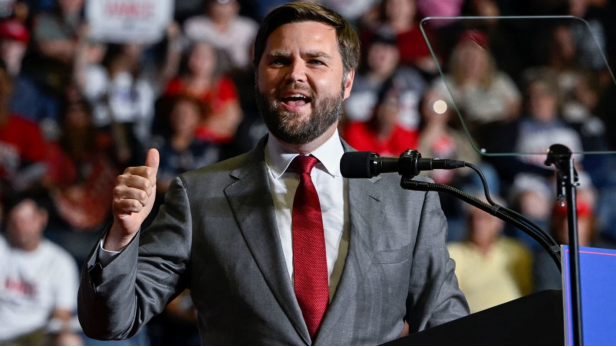
JD Vance’s Vice-Presidential Nomination Raises Alarm in Kyiv Over US Policy Towards Ukraine
Fiona Nanna, ForeMedia News
4 minutes read. Updated 11:56PM GMT Tues, 16July, 2024
Republican presidential nominee Donald Trump’s selection of Senator JD Vance as his running mate for vice president has reverberated globally, particularly in Kyiv, where concerns over US foreign policy towards Ukraine have intensified.
Vance, a prominent advocate of Trump’s “America First” doctrine, has expressed skepticism towards US involvement in foreign conflicts and has voiced opposition to increased aid for Ukraine. His stance has raised alarms in Ukrainian political circles, notably as President Volodymyr Zelenskyy contemplates the potential outcomes of another Trump presidency.
In December, Vance suggested that Ukraine should negotiate a peace deal with Russia, potentially involving territorial concessions—an unprecedented notion for Kyiv. He argued, “It ends the way nearly every single war has ever ended: when people negotiate and each side gives up something that it doesn’t want to give up.”
The former Marine has also downplayed concerns about Russian expansionism into Europe, questioning President Vladimir Putin’s capabilities and Europe’s reliance on US military support. He emphasized this viewpoint in a recent opinion piece for the Financial Times, advocating for greater European defense spending and reduced US military commitments abroad.
Responding to Vance’s nomination, Timothy Ash of BlueBay Asset Management expressed apprehension, stating, “‘God help Ukraine’—these words sum up the anxiety felt here.” Ash has previously criticized Vance’s proposals, warning of dire consequences for Ukraine’s sovereignty without continued US military support.
The debate over US aid to Ukraine has been contentious, with Vance’s views contrasting sharply with current NATO policies and bipartisan support for bolstering Ukrainian defenses. The passage of a $61 billion aid package earlier this year underscored Ukraine’s ongoing struggle against Russian aggression, prompting renewed appeals for advanced weaponry and military assistance from Western allies.
President Zelenskyy, reflecting on US-Ukraine relations amidst electoral uncertainties, remarked, “We value bipartisan support from both Democrats and Republicans.” However, he acknowledged concerns within Ukraine about potential shifts in US policy towards the war in Ukraine under a future Trump administration.
As NATO reaffirms its commitment to Ukrainian security amid ongoing hostilities, analysts warn of potential shifts in US foreign policy under a Trump-Vance ticket. Guntram Wolff of the Bruegel think tank cautioned, “There are rumors of proposed peace plans that could drastically alter Ukraine’s territorial integrity, raising serious questions about future transatlantic security.”
With no immediate ceasefire in sight and both sides committed to military strategies, the conflict in Ukraine remains a pivotal issue for global security. NATO’s ongoing support and Ukraine’s resilience amidst Russian demands signal a prolonged period of uncertainty and geopolitical tension.

